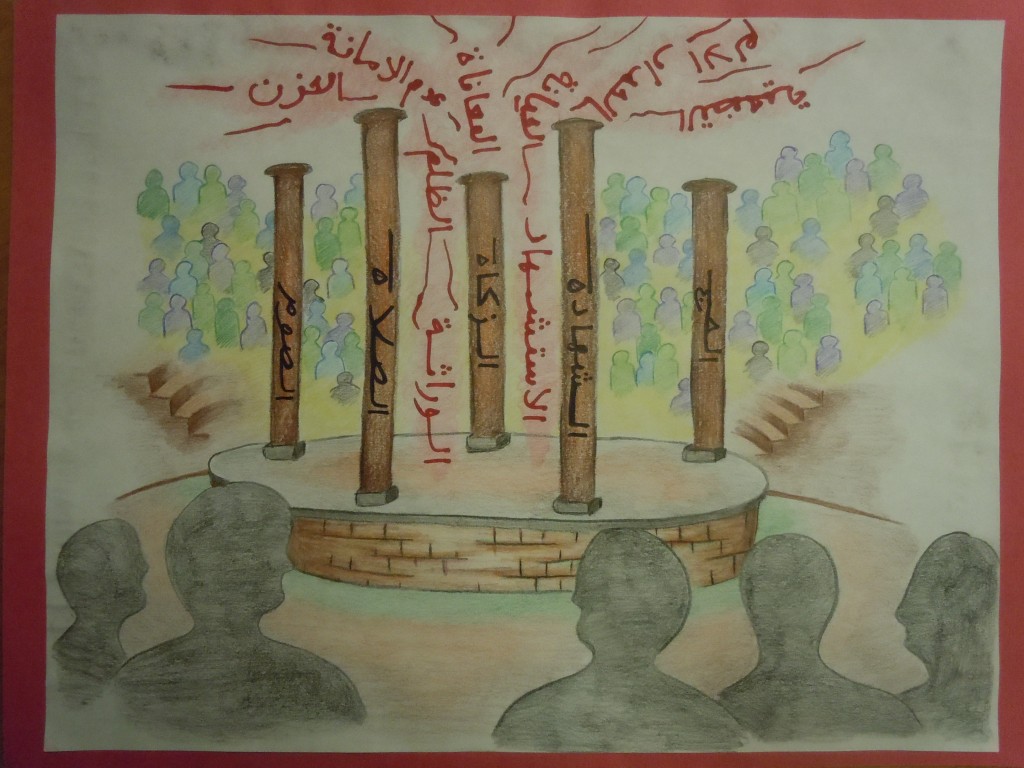The Art of Tragedy
In this piece, I sought to capture the pain and suffering stressed in the ta’ziyah that I felt. Though I know these aren’t the only aspects of this grand spectacle, this aspect most grabbed my attention. The ta’ziyah is discussed in week 5’s readings.
Here, I tried to incorporate a little bit of everything. The five pillars of Islam surround the stage, laying the grounds for what happens within. Onlookers watch, though, as their hero experiences the pain, suffering, and betrayal year after year. This remembering of the tragedy which clearly defined the separation between the Shi’ah and the Sunni emanates from the stage. Onlookers not only see the events taking place, but resonate with the emotional tidal waves crashing upon them. The words spewing forth from the stage represent these emotional tides, differing in type, but none less powerful than the previous.
The crowd’s identity is lost, as they become the very people condemn. This is represented by the faceless shadows of the crowd. The perspective of the viewer is also the same as this crowd, which is done by the people in the foreground of the focus of the drawing. The viewer places himself into this ambiguous group of onlookers, and can see the emotions about to overtake him. Also, though, there is an empowering trait of being part of the masses. Because of this perspective, the viewer is not just an onlooker, but a participant. These participants are even given opportunities sometimes to decide the fate of those on stage in certain performances.
The words I chose are: pain, suffering, injustice, inheritance, mourning, grief, betrayal, dishonesty, martyrdom, and sacrifice. The reason I chose these is because they encapsulate many of the negative powerful emotions that the ta’ziyah is supposed to invoke. They flow from the center of the stage because that is the main purpose (or so I have understood) of this stage. It was designed so that the people would not soon forget the wrongs they believed were done, and also meant for the people who viewed this to feel like they were powerful, just as the seemingly powerless Husein was powerful.
